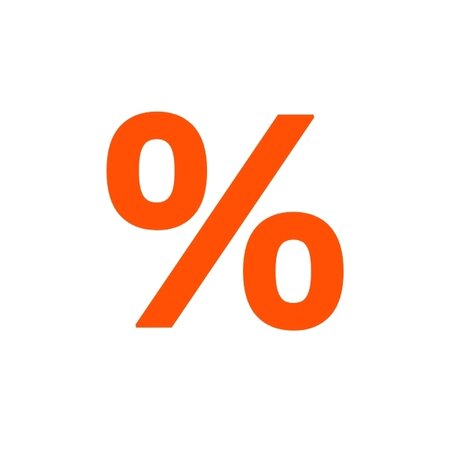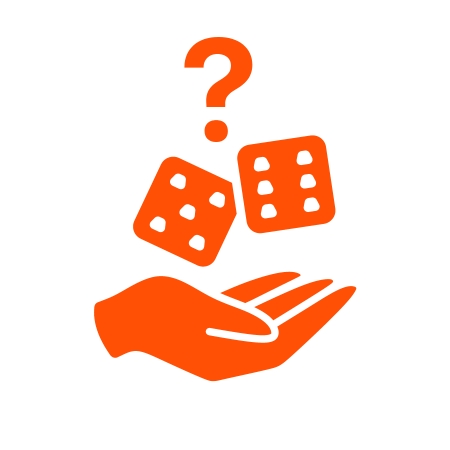Master Value BettingYour Guide To Sports Betting Value
What Does Value Betting Mean?
Value betting occurs when a bettor is offered odds that are more favorable than the true probability of an event's outcome. For instance, consider a fair coin toss; it has an equal 50% probability for both heads and tails. Thus, the correct odds for each outcome should be even money, or +100 (wager $100 to win $100).
If the offered odds were +120 (bet $100 to win $120) on heads, it would be classified as a value bet. This situation arises because these odds surpass the actual probability of the coin landing on heads.
Now, let’s apply that same concept to sports betting .

Value Betting in Sports
In sports betting, the value is often less straightforward than in a coin toss. For instance, accurately determining the odds for the Philadelphia Eagles covering a 6.5-point spread or the Los Angeles Dodgers winning a game on the moneyline is quite challenging. Nevertheless, every event's betting odds come with implied probabilities, which indicate the break-even point.
Take the standard odds of -110 (bet $110 to win $100) found on both sides of a point spread in sports like football or basketball. At these odds, the implied probability is 52.38%, representing the break-even threshold for that bet. If you believe the Eagles -6.5 have a probability exceeding 52.38% of winning, your wager could be seen as a value bet if your evaluation is correct.
Check out The Sports Geek’s Sports Betting Odds Calculator If you wish to determine the implied odds for any bet, you can explore this guide on how betting odds work for further insights and tips. In the upcoming section, we will discuss the distinctions between fair, negative, and positive expected values in the context of sports betting.
What does Expected Value mean in Sports Betting?
The expected value (EV) of a wager indicates the difference between your anticipated outcome and the odds provided by the betting platform. Understanding expected value is essential for evaluating the likelihood of an event's outcome and deciding whether a particular bet is worthwhile.
You can calculate EV by contrasting the actual odds of an outcome with the betting odds available. The formula for calculating expected value is as follows:
Expected Value = (Win Probability x Total Win Payout) + (Loss Probability x Total Loss Payout)
Bets can have a fair/neutral, negative, or positive expected value. Here, we will differentiate these three types using a coin flip scenario where your odds might be -110, +100, or +110.
- Positive EV: A bet that is expected to be profitable over time
- Negative EV: A bet anticipated to incur losses over time
- Fair or Neutral EV: A bet expected to yield neither profit nor loss over time
Bear in mind that in sports betting, the exact odds for any given result will remain unknown, meaning that calculating EV is not perfectly precise. However, the more adept you become at evaluating value, the greater your chances of achieving positive EV outcomes in sports betting.
What is Fair Expected Value?
Imagine placing a $100 bet to win $100 on heads with +100 odds across 100 coin flips. If you get 50 heads and 50 tails:
- 50 Heads Wins = $5,000 ($100 x 50)
- 50 Heads Losses = -$5,000 (-$100 x 50)
- Net Wins $5,000 – Net Losses $5,000 = $0 total
This scenario results in a break-even situation, representing a fair or neutral expected value. Over time, you will neither gain nor lose money from this bet, which is illustrated by the EV equation:
- Probability of Win: 0.5 (50%)
- Total Payout for Win: $200 ($100 stake and $100 profit)
- Probability of Loss: 0.5 (50%)
- Total Payout for Loss: $0
- EV = (0.5 x $200) + (0.5 x 0) = $100. Since the expected return from this $100 bet equals $100, it denotes a neutral EV.
What is Negative Expected Value?
Now, consider that you are wagering $110 to win $100 on heads with -110 odds across 100 flips. If you still get 50 heads and 50 tails:
- 50 Heads Wins = $5,000 ($100 x 50)
- 50 Heads Losses = -$5,500 (-$110 x 50)
- Net Wins $5000 – Net Losses $5,500 = -$500 total
- -$500 divided by 100 = -$5 per flip
- EV = (0.5 x $210) + (0.5 x 0) = $105. The expected return from this $110 bet is $105, indicating a negative EV.
Thus, losing $5 on every $110 bet equates to a negative expected value of -4.55%. This example highlights why many sports bettors struggle to turn a profit. Often, spreads and totals are viewed as even propositions yet come with negative EVs for bettors who do not win at an above-average rate.
What is Positive Expected Value?
To conclude, let’s say you place a $100 wager to gain $110 on heads with +110 odds over 100 coin flips. If 50 flips land on heads and 50 land on tails:
- 50 Heads Wins = $5,500 ($110 x 50)
- 50 Heads Losses = -$5,000 (-$100 x 50)
- Net Wins $5,500 – Net Losses $5000 = +$500 total
- +$500 divided by 100 = +$5 per flip
- EV = (0.5 x $210) + (0.5 x 0) = $105. The expected return from this $100 bet is $105, leading to a positive EV.
In this scenario, you're left with a positive expected value of 5% for this wager. Even though the true odds for the coin flip remain unchanged in all three scenarios, the expected value varies significantly depending on the price you received for the bet.

EV Relates to Probability, Not Just Odds Price
It's crucial to understand that not every underdog with high '+ ' odds will guarantee positive expected value, nor will every favorite with low '- ' odds guarantee negative value. Value is always intrinsically linked to the actual odds.
For example, take a standard roll of a fair 20-sided die. The true odds of rolling a 20 is 1 out of 20, or 5%. Conversely, the odds of rolling any number from 1 to 19 is 19 out of 20, equating to 95%. Therefore, the fair odds for rolling a 20 would be +1,900, while fair odds for numbers 1-19 would be approximately -1,900.
Should a sportsbook set odds of -1,500 on rolling a number between 1 and 19, some bettors might hesitate, concerned about the risk of rolling a 20 after wagering so much for minimal gains.
However, this situation actually presents a significantly positive expected value opportunity. For instance, if you bet $1,500 to win $100 across 100 hypothetical rolls, with 5% hitting a 20 and 95% hitting 1-19:
- 95 Wins = $9,500 ($100 x 95)
- 5 Losses = -$7,500 (-$1500 x 5)
- Net Wins $9500 – Net Losses $7,500 = +$2,000 total
- $2,000 divided by 100 = +$200 per roll
$200 profit per roll divided by $1,500 bet unveils an impressive positive EV of 13.33%. This doesn’t automatically suggest that one should bet on all large favorites; it merely emphasizes that value bets can emerge at any price when the payout aligns favorably with the true odds. Although discovering sports betting value can be challenging, it is certainly attainable.
Why Do Value Bets Exist?
Sportsbooks excel at establishing betting lines that strive for accuracy. They employ specialized teams to keep abreast of current events and sophisticated algorithms to analyze matchups. Nonetheless, even the best sports betting sites aren't infallible, and those occasional mistakes can lead to valuable betting opportunities. Here are some primary reasons that contribute to the existence of value betting in sports.
1.The Oddsmakers Aren’t Perfect
In high-stakes games, oddsmakers are less likely to make significant errors. Take, for example, regular NFL matches, critical playoff contests, and showcase games featuring well-known teams. Sportsbooks dedicate significant resources to formulate exceptionally precise lines for these pivotal games.
Nevertheless, perfection is elusive, especially considering the vast number of sporting events throughout the year. Major leagues such as the NBA, NHL, and MLB host well over a thousand games during a regular season. Additionally, college sports encompass thousands of competitions across numerous conferences, while soccer features hundreds of matches in multiple countries, alongside less mainstream sports like golf, tennis, MMA, and others.
Moreover, besides the standard moneylines and totals for these events, many sportsbooks are now extending their offerings to include props, futures, and live betting options. There simply aren't enough resources available to sportsbooks to ensure that every one of these betting lines is flawless every time. Though sportsbooks may implement higher margins and tighter betting limits for certain markets to mitigate these discrepancies, value can still be discovered by savvy bettors.
2.You're Primarily Betting Against Public Perception
Betting platforms typically strive to mitigate their risk on any specific game or event by fostering balanced betting across both sides. If one side attracts disproportionate betting, it could expose the sportsbook to substantial losses if that side emerges victorious. For example, suppose a sportsbook accepts $2 million in bets on the Seattle Mariners at +100 while only $500,000 in bets on the Texas Rangers at -120; they would stand to lose $1.5 million ($2 million - $500,000) if the Mariners win.
In contrast, envision a scenario where $1.1 million is bet on the Mariners at -110 and $1.1 million on the Rangers at -110. In this case, the sportsbook would retain $1.1 million in losing bets and payout $1 million in winning bets, securing a profit of $100,000 regardless of which team prevails. This situation clearly exemplifies the ideal condition for any betting site.
However, achieving evenly distributed bets is rare. It is not unusual to witness one side garnering 60%, 70%, or even 80% of the total action on a spread or total, particularly when a team is nationally favored or on a winning streak.
To balance the betting action, bookmakers frequently modify their odds in a bid to attract bettors toward the less popular side. This is why you often observe fluctuations in moneyline prices and spreads in the days or hours leading up to an event.
Even in the event the oddsmakers have accurately assessed the true odds, the actual odds available can significantly diverge due to public betting behavior. These shifts in public perception can yield unexpected value opportunities that might not have been present otherwise.
3.Adjustments To Breaking News
Oddsmakers will promptly modify or withdraw lines upon receiving breaking news that could affect the game, such as player injuries or trades. Similar to their imperfect line-setting due to limited resources, they also can struggle with timely adjustments. A line that fails to correctly reflect crucial news updates might present a valuable betting opportunity for or against the affected team.
Now that you grasp the rationale behind the existence of value bets, let us examine various strategies for identifying value in sports wagering.
How To Find Value in Sports Betting?
A strategy for successful sports betting based on value requires utilizing the various tools and resources available to you. Here are some suggestions to help you identify the most advantageous bets in the world of sports wagering.

1. Learn To Think in Probabilities
Most recreational sports bettors tend to concentrate on guessing the final result of a match. Rather than making random guesses, consider analyzing each potential outcome by assigning probabilities to them.
An excellent method to train yourself to think about probabilities involves considering what would happen if the same matchup occurred 100 times, such as when the Los Angeles Dodgers face the San Diego Padres. How often do you think each team would claim victory? Additionally, how frequently do you predict the game's score would surpass or fall short of the established total?
Suppose you estimate that the Dodgers would win 60 out of 100 matches. By using The Sports Geek’s resources, you could find out that based on those implied probabilities, the break-even point for this wager would be Los Angeles -150 and San Diego +150. You can then evaluate these values against the odds offered by your betting platform to check if either option qualifies as a value bet. Sports Betting Odds Calculator Brainstorming about betting strategies can spark valuable insights—picture a lightbulb above a brain!

Oddsmakers are obligated to set betting lines for every sport on their roster. This necessity often leads to thinly spread resources across numerous leagues rather than allowing for in-depth focus on any one area.
As a sports bettor, you don’t face these constraints. There’s no need for you to analyze and wager on every available team or sport. Instead, you can develop expertise in the teams, leagues, or betting types that truly interest you. This specialization enables you to spot opportunities for positive expected value, particularly when public sentiment inadvertently distorts the betting line.
Consider checking out general advice on enhancing your handicapping skills. You might also explore these pages dedicated to specific sports to refine your focus in your area of choice:
Browse through our sports betting strategy page 3. Establish a System and Maintain Comprehensive Records
Once you begin framing your thoughts in terms of probabilities and dedicate yourself to mastering a particular sport, team, league, or player, it's crucial to start gathering data.
What kind of wagers are you making? What advantages do you think you have when placing them? Are you generating profits or incurring losses? Regardless of the value betting system or strategy you create, always document the bets you monitor or execute. This practice will help you recognize what approaches are effective and which ones require adjustment.
Our team of sports betting specialists and our AI, affectionately dubbed the Geek, actively seek out valuable betting opportunities. You can access daily complimentary picks that you can compare with your own betting strategies.

4. Get Some Help From The Geek
Even the slightest change in betting lines can alter the assessment of a value bet, either positively or negatively, and these variations can accumulate rapidly. Therefore, it's advantageous that you're not restricted to a single sportsbook. By registering with multiple trusted betting platforms, you can compare odds and place wagers at the most favorable rates. Additionally, you may capitalize on welcome bonuses when joining a new site. The Sports Geek picks page 6. Implement the Kelly Criterion for Effective Bankroll Management

5. Line Shopping and Odds Comparison
Effective bankroll management is crucial for sustained success in sports betting. No matter how adept you become at identifying promising bets, you will inevitably experience periods of misfortune. By managing your bankroll wisely, you can endure tough times and ultimately achieve better results over time.

As you improve your skill in spotting value bets, you might consider applying the Kelly Criterion. This strategy considers your bankroll and anticipated advantage to help you determine the most suitable wager size. Bettors who feel that the classic Kelly Criterion is too aggressive might prefer a more conservative approach, such as the half-Kelly or quarter-Kelly method.
Proper bankroll management For insights into the Kelly Criterion formula and other beneficial betting tools, feel free to check out our resources.
7. Maintain Discipline and Avoid Emotionally Driven Bets use a betting system Even the most reliable value betting systems are not immune to human mistakes. A series of losses may result in frustration and reckless attempts to recover lost funds. Conversely, consecutive wins can lead to overconfidence and excessive risk-taking.
Avoid letting your feelings cloud your judgment or impact your betting decisions. Instead, rely on logic and analytical thinking when evaluating games. If you find emotions beginning to influence your choices, it's a good idea to step away for a bit. You can always return to betting with a clearer mindset later. sports betting math page .

Here are some additional guides that might prove helpful as you refine your betting strategy:
Learn how to bet on opposing outcomes to secure profits or minimize potential losses.
Discover methods to effectively manage your bets by categorizing your bankroll into units.
Other Useful Strategy Guides
Find out what a sweetheart teaser means and if there is value in this type of wager.
Hedging Your Bets Identifying value in sports betting can often be a challenging endeavor. It requires dedicated effort to become knowledgeable in a specific area, consistently think in terms of probabilities, and pinpoint promising betting opportunities. Nonetheless, with the right tools and knowledge at your disposal, you now have what it takes to uncover positive expected value in betting. Although your calculations may not always be spot-on, employing the value betting strategies detailed on this page is likely to increase your profitability as a sports bettor over time.
Units in Sports Betting Dave Consolazio is a passionate sports enthusiast and writer, boasting over 15 years of experience in the field. Residing in Los Angeles, he enjoys a wide variety of sports, with football and hockey holding a special place in his heart. Outside of sports betting and writing about sports, Dave likes to play poker or video games while staying updated on the latest developments and trends in the gaming industry.
Sweetheart Teasers Discover our Free KBO Predictions: Top Korean Baseball Bets for June 14.
Value Betting Key Takeaways
Check out the 2025 Club World Cup Favorites, Predictions, and Odds for Top Goalscorer.





